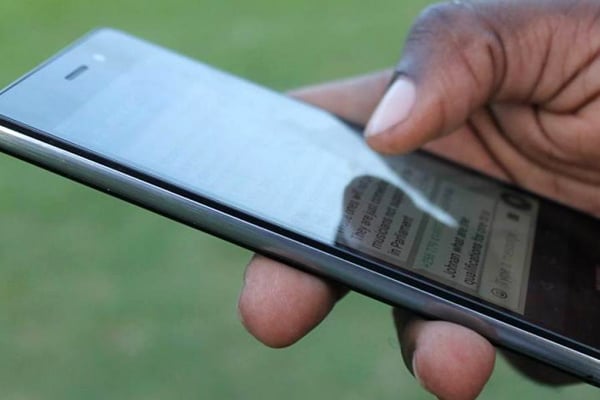Consult widely on use of mobile phones in schools

Mr Godfrey Mubiru, the school director of studies at Nakasero SS said they took the decision to allow the learners to use smartphones to facilitate the implementation of the new lower secondary school curriculum.
What you need to know:
- While there is no denying that the world is moving fast with technology changing every day and that we must adapt or die, we must think deeply about the implications of decisions made while we play catch up.
Yesterday we reported that the government made a U-turn barely less than 24 hours after proposing to authorise the use of mobile phones by learners in schools.
The State Minister for Higher Education, Mr John Chrysostom Muyingo, revealed that the Ministry of Education is working on a policy that will soon be presented to Cabinet for approval to guide the use of ICT in institutions of learning and also promote equity in access to quality education.
He said the ministry wants to fully adopt the use of ICT in the entire education system in a manner that is age-appropriate, beneficial, and safe for the learner, teacher, and the school environment. (See Daily Monitor of March 17, “Govt makes U-turn on use of phones, school visits”)
When the announcement authorizing the use of mobile phones by learners was made a day earlier, a large section of the public was up in arms. Most parents were worried about how the use of these phones was going to be regulated to ensure that they are being used for academic purposes and not for access to other unrelated content and even worse, age-inappropriate content, or content that would derail and destruct learners from their studies.
ALSO READ: Govt permits visits, phones for students
Others were concerned about the safety of the learners given that unscrupulous people who usually masquerade on social media as well-meaning members of society would now find it easier to take advantage of naïve students especially away from the cover and protection of their parents and guardians through the internet-enabled phones.
And that even if the school administration instituted mechanisms to supervise or regulate the use of these phones, they would be overwhelmed by the numbers. And then, of course, there was the concern that many learners especially in rural areas who can’t afford basic scholastic materials let alone a smartphone to aid research would be left behind in this project to encourage advanced use of ICT. All these and others not mentioned here are valid and make the U-turn on the use of phones in schools a welcome move.
While there is no denying that the world is moving fast with technology changing every day and that we must adapt or die, we must think deeply about the implications of decisions made while we play catch up.
Hopefully, the Ministry will come up with a well-thought-out and viable policy on this issue to ensure meaningful and manageable change as we embrace different forms of ICT in our education sector.




